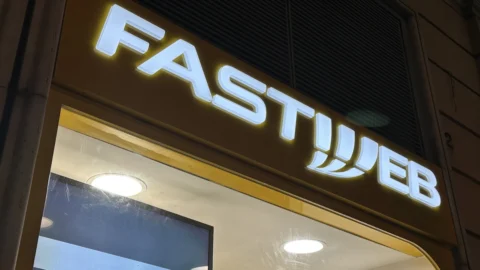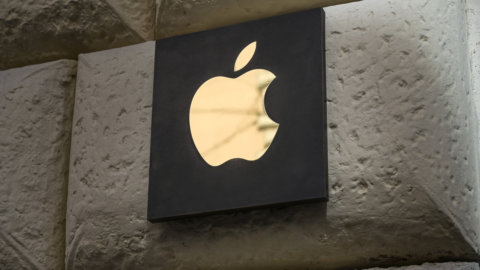The war continues, Covid rises, oil runs, Putin sells gas for rubles and the only certainty of the period remains uncertainty, to paraphrase the Italian economy minister Daniele Franco.
In this context, after yesterday's gains, the European stock markets are back in the red, supported at the start by the positive closure of the Asian stock exchanges (Tokyo +3%), but with the appetite for risk gradually weakening as the hours go by, also considering the negative opening of Wall Street. Currently the DJ loses almost one percentage point.
In Europe the main price list of Milano closed down 0,96% (24.298 basis points), Paris -1,17% Frankfurt -1,34% Amsterdam -0,89% Madrid -1,82% London -0,26%.
Salt on Petroleum, with Brent soaring over 122 dollars (+5,73%) and Texan crude over 115 dollars (+5,39%).
In terms of currency, the euro is slightly down on the dollar, but around 1,1. The ruble rears its head.
Sales on bonds in the US and Europe subside.
Biden in Europe for new sanctions and Putin only wants payments in rubles
To create a certain nervousness is also the expectation of new sanctions against Russia, which will be discussed tomorrow in Europe with the North American president Joe Biden, who will participate in a NATO summit in Brussels. In the Belgian capital there will also be the G7 and the European Council, with all 27 leaders of the Union. In the eye of the storm, unleashed by the Russian attack on Ukraine, there is Europe itself, which has to deal with three major emergencies: humanitarian, economic-food (given the shortage of wheat and corn from Russia and Ukraine), energy, due to dependence on Russian gas and oil.
President Biden should announce new sanctions, but European countries are divided above all on the energy issue. Particularly slowing down is Germany, Moscow's main customer (together with Italy). According to German Chancellor Olaf Sholz, an immediate stop to imports would cause a real recession on the continent. And the account of what is happening is already weighing on the recovery. The Bundesbank warns that Berlin will see more inflation and less GDP as a result of this war. The Ifo Institute estimates "a growth of between 2,2% and 3,1% this year". In December, the institute had forecast growth of 3,7%. Expectations for inflation, on the other hand, are moving upwards and in a range between 5,1% and 6,1%, up from the 3,3% expected in December.
As far as Italy is concerned, Minister Franco says that “the only clear aspect is that the uncertainty is enormous. We don't know when this war will end and how it will end and this has an impact on the country's economic prospects.
In the meantime, Putin responds to Western moves with the decision that gas supplies are paid in rubles by "hostile" countries. That's about $400 million a day. The move caused the price of gas to soar by more than 30%, although the surge has since subsided slightly. The ruble also benefited, up 5%.
The Moscow Stock Exchange reopens
After a month's hiatus, the Moscow Stock Exchange will reopen tomorrow, as announced by the Russian central bank. The recovery will be only with 33 stocks, which will be traded for a limited time and with a ban on short selling. Trading in blue-chip stocks, including those of state-owned lenders Sberbank and VTB and energy majors Rosneft and Gazprom, will take place between 07,50 and 12,00, the central bank said.
Russian shares were last traded on the Moscow Stock Exchange on February 25. The central bank then restricted trading after Western sanctions following theinvasion of Ukraine have sent markets into turmoil. Trading in Ofz government bonds resumed on Monday, with the central bank buying Ofz bonds in a bid to limit volatility.
Piazza Affari in red with banks and utilities
The surge in black gold favors the rally in Piazza Affari's oil stocks. In fact, they are among the best blue chips of the day Saipem +7,2%; Tenaris +2,78%; Eni + 0,9%.
According to two Reuters sources, the core investors of Saipem, Eni and CDP together with a pool of banks are ready for an immediate liquidity injection of 1,5 billion euros in view of the total capital increase of 2 billion. “The capital increase, caused by the large loss recorded in 2021, is considerable,” writes Banca Akros, but the outlook on investments in exploration and production is improving. The broker adds that it is reasonable to assume that oil and gas supply concerns could lead to increased investment in both upstream and downstream segments.
The geopolitical framework and the sudden awareness of the European countries that defense needs to be strengthened are the springboard for Leonardo +2,65%, which remains well tuned in the period. Well Telecom +0,7%, pending developments with Kkr and on rumors of CVC's interest in the future EnterpriceCo.
The list is mainly weighed down by banks and utilities. The biggest losses, among lenders, are for Unicredit -2,96% Understanding -2,48%. In asset management Post limits damage to 0,14%, after that 2021 results above expectations and upward guidance for the current year. Among the utilities, they retreat Ivy -3,58% and Italians -2,73%. Lose stellantis, -1,54%, which confirmed the commitment to transform the current Termoli plant in a new battery production plant.
Out of the main basket, Fila stands out, +9,41%, thanks to the 2021 results. "The numbers for 2021 were good, in line with market expectations and even better in terms of cash generation", writes Banca Akros, adding that 2022 "could be a brilliant year" if the macroeconomic context does not worsen.
Declining spreads and yields
The spread between Italian and German ten-year bonds decreased slightly, closing at 152 basis points (-0,89%). The reduction is modest and parallel for the Btp and Bund rates, at +1,99% and +0,48% respectively.
On the primary asset the placement of the new CcTeu with requests for 10,7 billion euros, launched by the Treasury for an amount equal to 5 billion euros. This was reported by financial sources to Radiocor according to which the stock was priced with a spread of 75 basis points on the 6-month Euribor (it was 80 basis points this morning when the books opened for the collection of orders).
Prices are rising and yields are falling very slightly for i US government bonds. The 2,36-year bond shows a slow reverse rate of 0,69% (-2%). The curve remains flat, however the 2,132-year bond shows a downward yield to 5%. The 10-year bond is confirmed to be higher than the 2,371-year bond, with a yield down to 30%. 2,596-year bond, yield down to XNUMX%.





